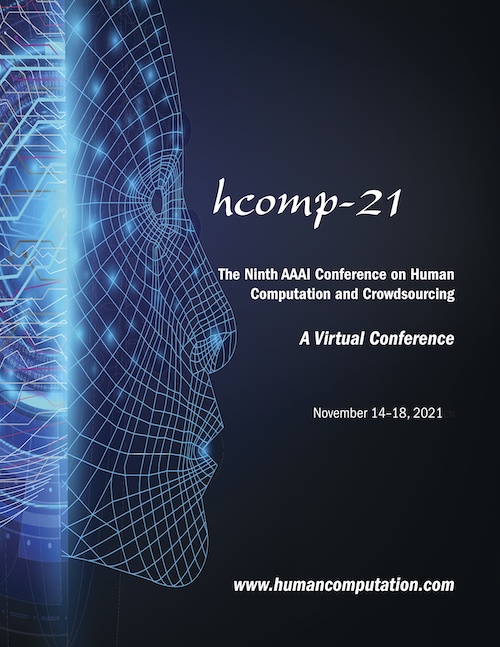Iterative Human-in-the-Loop Discovery of Unknown Unknowns in Image Datasets
DOI:
https://doi.org/10.1609/hcomp.v9i1.18941Keywords:
Human-in-the-Loop, Space DifferentiationAbstract
Automatic predictions (e.g., recognizing objects in images) may result in systematic errors if certain classes are not well represented by training instances (these errors are called unknowns). When a model assigns high confidence scores to these wrong predictions (this type of error is called unknown unknowns), it becomes challenging to automatically identify them. In this paper, we present the first work on leveraging human intelligence to discover unknown unknowns (UUs) in an iterative way. The proposed methodology first differentiates the feature space generated by crowd workers labelling instances (e.g., images) in an active learning fashion from the space learned by the prediction model over a batch training phase, and thus identifies the predictions most likely to be UUs. Next, we add crowd labels collected for these discovered UUs to the training set and re-train the model with this extended dataset. This process is then repeated iteratively to discover more instances of both unknown and under-represented classes. Our experimental results show that the proposed methodology is able to (1) efficiently discover UUs, (2) significantly improve the quality of model predictions, and (3) to push UUs into known unknowns (i.e., the model makes mistakes but at least its classification confidence on those instances is low so those predictions can be discarded or post-processed) for further investigation. We additionally discuss the trade-off between prediction quality improvements and the human effort required to achieve those improvements. Our results bear implications on building cost-effective systems to discover UUs with humans in the loop.Downloads
Published
2021-10-04
How to Cite
Han, L., Dong, X., & Demartini, G. (2021). Iterative Human-in-the-Loop Discovery of Unknown Unknowns in Image Datasets. Proceedings of the AAAI Conference on Human Computation and Crowdsourcing, 9(1), 72-83. https://doi.org/10.1609/hcomp.v9i1.18941
Issue
Section
Full Archival Papers

